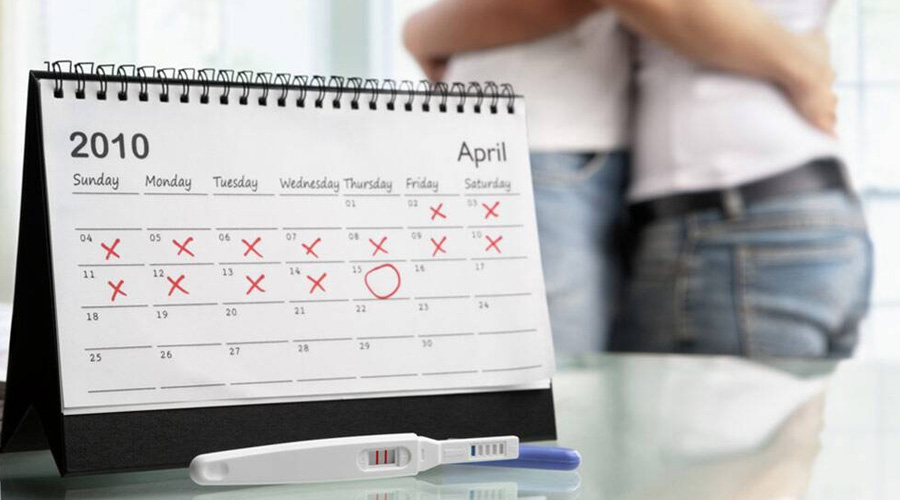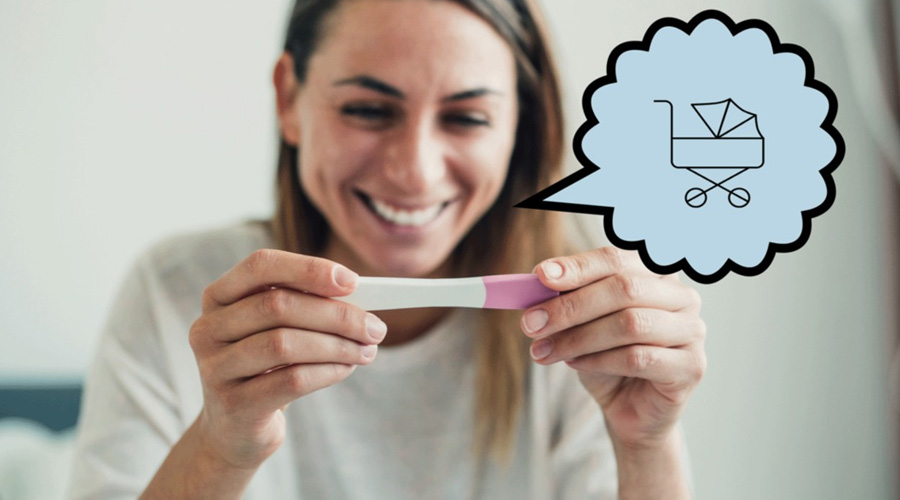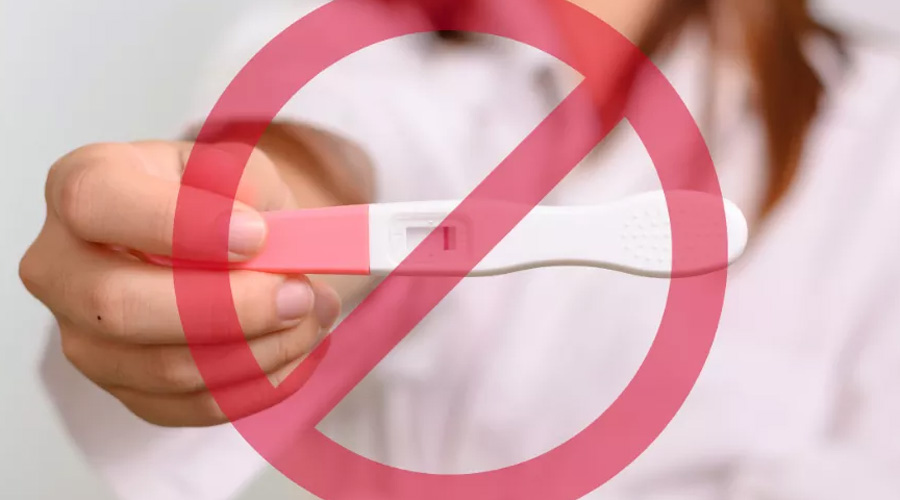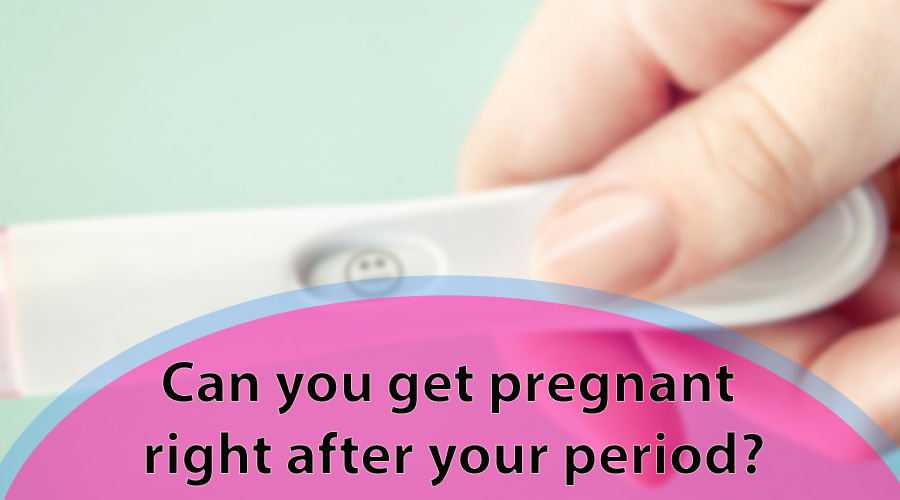It can be tricky to figure out when you’re ovulating, and even trickier to know when you can get pregnant. Some people believe that you can’t get pregnant right after your period, but that’s not always the case.
In this blog post, we will explore whether or not it is possible to get pregnant right after your period. We will also discuss some tips for trying to conceive in this timeframe!
Table of Contents
Factors that make it more likely
Ovulation can be defined as the release of an egg from one of your ovaries. This usually occurs around 14 days after the start of your period but can vary from woman to woman.
The egg will only survive for around 12-24 hours, so it’s important to try and conceive during this time if you’re trying to get pregnant.
One of your ovaries will release an egg ( ovulation ) about 14 days before your period starts.

There are a few different factors that can make you more likely to get pregnant right after your period. These include:
- Ovulation can vary from woman to woman, so it’s important to track your cycle and figure out when you’re ovulating. You can do this by tracking your basal body temperature or by using an ovulation predictor kit.
- The egg only survives for around 12-24 hours, so you need to try and conceive during this time if you’re trying to get pregnant.
- Sperm can survive for up to five days inside of the female reproductive tract, so you may have a higher chance of getting pregnant if you have sex in the days leading up to ovulation.
Although chances aren’t that high, there’s still a possibility!
This means it may be possible to get pregnant soon after your period finishes if you ovulate early, especially if you have a naturally short menstrual cycle.
For a person whose ovulation timing hovers near the average, it would be possible to get pregnant by having sexual intercourse as early as day 7, right after a period, and sometimes while still bleeding.
If you have extremely unpredictable, irregular cycles, figuring out your average cycle length, let alone your fertile period can be challenging.
Consult your doctor if you have any troubles in conception and pregnancy. They would know how to help out and get you your dream of becoming parents!
Your menstrual cycle and conception
A menstrual cycle can be defined as the time between a woman’s periods. Most women have a menstrual cycle that lasts around 28 days, but it can vary from woman to woman. The average menstrual cycle is divided into three phases: the follicular phase, the ovulatory phase, and the luteal phase.
The follicular phase starts on the first day of your period and lasts until the day of ovulation. This is when your body starts to prepare for ovulation.
The ovulatory phase occurs when an egg is released from one of your ovaries.
The luteal phase follows ovulation and lasts until the start of your next period. This is when your body gets ready for another cycle.
They are not always consistent and even for the same woman, one cycle can be very different from the next.
A regular menstrual cycle only fluctuates between 21 to 35 days while an irregular menstrual cycle can be inconsistent and unpredictable, this usually lasts less than 21 days or more than 35 days.

There are a few things that can affect your menstrual cycle and make it more likely that you will conceive right after your period. These include:
- The length of your menstrual cycle: A short cycle means that there is less time between periods, which can increase the chances of conceiving.
- The timing of ovulation: If you ovulate early in your cycle, there is a greater chance that you will conceive right after your period.
- The quality of your eggs: Younger women tend to have higher quality eggs, which can increase the chances of conceiving.
It is important to engage in sexual intercourse right away when you confirm that you are indeed fertile or are currently on your fertile window (the three days leading up to ovulation).
Chances of getting pregnant
The chances of getting pregnant right after your period are relatively low. This is because ovulation usually occurs around 14 days after the start of your period, and the egg only survives for 12-24 hours.
However, there are a few things that can make it more likely to get pregnant in this timeframe. These include:
- Tracking your menstrual cycle: If you track your menstrual cycle, you will be able to figure out when you’re ovulating and increase your chances of conceiving.
- The quality of your eggs: Younger women tend to have higher quality eggs, which can increase the chances of conceiving.
- Your lifestyle: A healthy lifestyle can improve your fertility and increase the chances of conceiving.

If you’re trying to conceive, it’s important to have sex in the days leading up to ovulation. Sperm can survive for up to five days inside of the female reproductive tract, so you may have a higher chance of getting pregnant if you have sex in this timeframe.
However, there is no guarantee that you will get pregnant right after your period. If you’re having trouble conceiving, it’s best to consult with your doctor.
How to prevent pregnancy?

If you’re not trying to get pregnant, there are a few different ways that you can prevent conception. These include:
- Using contraception: There are a variety of contraceptives available, including condoms, the pill, and IUDs.
- Avoiding sex: If you don’t want to use contraception, you can avoid having sex altogether.
- Getting your tubes tied: This is a permanent form of contraception that involves tying your fallopian tubes shut.
- Getting your vasectomy reversed: A vasectomy is a surgical procedure where the vasa deferentia are cut and sealed off so that sperm can’t travel from the testes to the penis.
Having unprotected sex at any time is risky and can result in pregnancy. Sometimes ovulation — the time when a girl is most likely to become pregnant — can happen within a few days of when your period ends. Also, sperm can fertilize an egg for 72 hours (3 days) after ejaculation.
Having unprotected sex at any time is very risky — a girl can even get pregnant if she has sex during her period. Along with the chance of becoming pregnant, there is also the risk of getting a sexually transmitted disease (STD), such as chlamydia, genital warts, or HIV.
If you do have sex, use a condom every time to protect against unplanned pregnancy and STDs.
No matter what method you choose, it’s important to be sure that you’re comfortable with it and that it works for you. You can talk to your doctor about which contraception option is best for you.
Early symptoms of pregnancy

Pregnancy can be a scary topic for some people, but it’s important to know what to expect. There are a few early symptoms of pregnancy that can occur in the first few weeks after conception. These include:
- Fatigue: Feeling tired is one of the earliest signs of pregnancy. This can be due to the increase in hormones that occurs during pregnancy.
- Nausea and vomiting: Many women experience nausea and vomiting in early pregnancy. This can be due to the changes in your hormone levels.
- Missed period: A missed period is the most common sign of pregnancy.
- Changes in breasts: Your breasts may become larger and more tender as early as one or two weeks after conception.
- Darker nipples and areolas: The pigmentation around your nipples and areolas may become darker as early as week two or three of pregnancy.
- Implantation bleeding: Some women experience implantation bleeding, which can occur when the fertilized egg implants itself in the uterus. This can happen six to 12 days after conception and may be mistaken for a period.
If you’re experiencing any of these symptoms, you should take a pregnancy test to see if you’re pregnant. You can also talk to your doctor about your symptoms and how to best manage them.
Pregnancy is an exciting time, but it can also be a time of anxiety and uncertainty. If you’re trying to get pregnant, there are a few things that you can do to increase your chances of conceiving.
If you think you might be pregnant, there are some home pregnancy tests to take. You can buy pregnancy tests at most pharmacies or online. If the test is positive, make an appointment with your doctor to discuss your options.
Inference
Can you get pregnant right after your period? It’s possible, but there is no guarantee. There are a few things that can increase your chances of getting pregnant, including having sex in the days leading up to ovulation and choosing a contraception method that works for you.
If you’re trying to prevent pregnancy, there are a variety of methods available, including condoms, the pill, and IUDs.
If you’re experiencing any early symptoms of pregnancy, take a pregnancy test to confirm. Pregnancy can be a time of excitement and anxiety, but it’s important to talk to your doctor about your options.
If none of these methods seem to be successful, or if you have participated in any type of birth control method like birth control pills in the past three years, it might be best to seek medical advice on planned pregnancy, sex, and safe ways to become pregnant and increase fertility.
FAQ
Can I get pregnant after 2 days of my period?
It’s possible, but there is no guarantee. There are a few things that can increase your chances of getting pregnant, including having sex in the days leading up to ovulation and choosing a contraception method that works for you.
If you’re trying to prevent pregnancy, there are a variety of methods available, including condoms, the pill, and IUDs.
How many days are you fertile after your period?
You can be fertile a few days after your period, but the chances of getting pregnant are lower. To increase your chances of conception, have sex in the days leading up to ovulation.
If you’re trying to prevent pregnancy, there are a variety of methods available, including condoms, the pill, and IUDs.
Is it safe after 5 days of the period?
There is no guarantee. There are a few things that can increase your chances of getting pregnant, including having sex in the days leading up to ovulation and choosing a contraception method that works for you.
If you’re trying to prevent pregnancy, there are a variety of methods available, including condoms, the pill, and IUDs.
How fertile are you 7 days after your period?
Your chances aren’t that high. There are a few things that can increase your chances of getting pregnant, including having sex in the days leading up to ovulation and choosing a contraception method that works for you.
If you’re trying to prevent pregnancy, there are a variety of methods available, including condoms, the pill, and IUDs.
Can you ovulate right after a period?
It’s very unlikely. There are a few things that can increase your chances of getting pregnant, including having sex in the days leading up to ovulation and choosing a contraception method that works for you.
If you’re trying to prevent pregnancy, there are a variety of methods available, including condoms, the pill, and IUDs.
